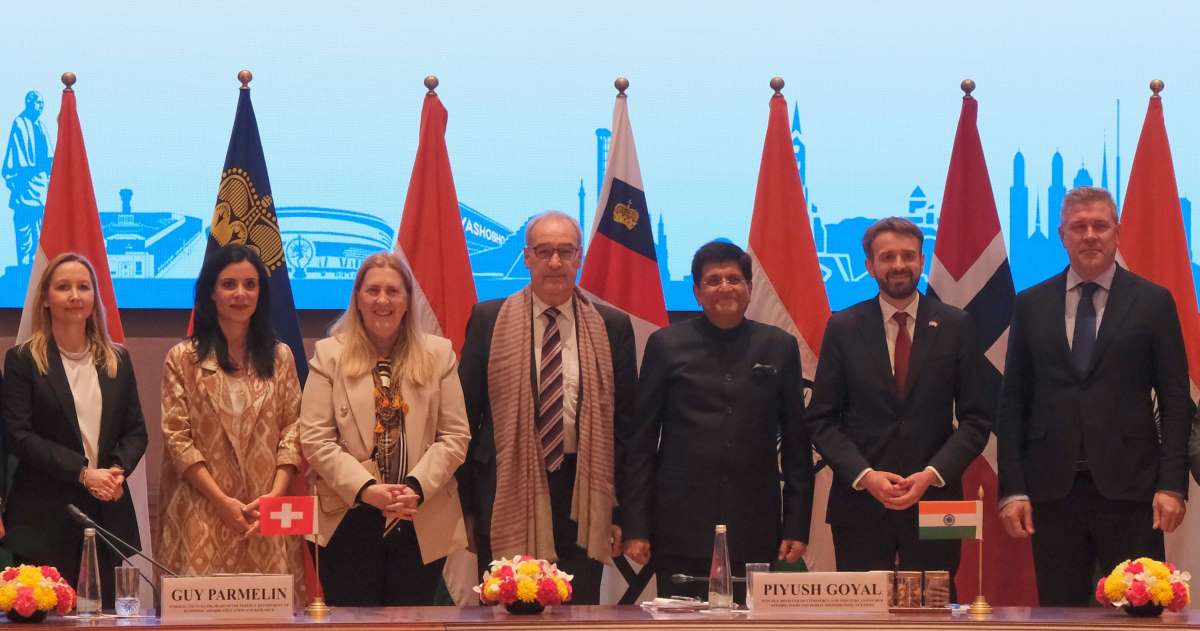
The European Free Trade Association (EFTA) nations have the potential to act as a bridge for the Indian textile and apparel industry to access the European market. The EFTA comprises Iceland, Liechtenstein, Norway, and Switzerland, all of which boasts of strong economic ties with the European Union (EU) through the European Economic Area (EEA) agreement. This agreement eliminates tariffs on most industrial goods, including textiles and apparel, traded between EFTA and EU nations.
Trade agreements between EFTA and Europe
The EEA agreement serves as the cornerstone of trade relations between EFTA and the EU in textiles and apparel. It ensures:
Duty-free movement of goods: Most textiles and apparel products can be exported and imported between EFTA and EU countries without any customs duties. Additionally, some EFTA countries have bilateral free trade agreements (FTAs) with the EU that further liberalize trade in specific sectors.
Harmonized standards: Both sides adhere to common technical regulations and safety standards, simplifying product compliance procedures.
Free movement of labor: Textile and apparel companies in EFTA can leverage the skilled workforce across Europe for enhanced production capabilities.
Textile and apparel trade between EFTA, EU
The EU is a major importer of textiles and apparel; imports reached €161 billion in 2022. This signifies a significant market opportunity for Indian exporters. And EFTA countries hold a significant share. Switzerland, for instance, is known for its high-quality textiles and clothing exports to the EU. India on the other hand is a leading textile and apparel producer, offering a wide range of products at competitive prices. By partnering with EFTA nations, Indian manufacturers can gain easier access to the lucrative EU market. While EFTA countries themselves might be smaller markets compared to the entire EU, they can serve as a stepping stone for Indian textile and apparel exporters. By establishing a presence in EFTA nations, Indian companies can benefit from duty-free access to the wider European market, gain valuable insights into European consumer preferences, and potentially build stronger relationships with European buyers.
Points to ponder
While EFTA presents a promising gateway, there are challenges to consider.
‘Rules of Origin’ is one of them. Companies must comply with specific rules of origin to qualify for duty-free access within the EEA. These rules ensure products originate from EFTA or EU countries. Competition is another factor. The European market is highly competitive, with established players from various regions. Indian manufacturers need to focus on quality, innovation, and cost-effectiveness to stand out. Also, efficient logistics are crucial for timely delivery across Europe. Partnering with EFTA companies with experience in navigating the European market can be beneficial.
Indeed, EFTA countries hold immense potential as a gateway for the Indian textile and apparel industry to access the European market. Leveraging the existing free trade agreements and strategic partnerships can pave the way for increased trade flows and mutual benefit. However, Indian exporters must be prepared to address challenges related to rules of origin, competition, and logistics for a successful foray into the European market through EFTA.












